After learning more in the possibilities in Fab Lab, I got interested about the possibility to create
modular helmet. I got influences for my idea from Wintercroft´s foldable paper helmets. Wintercroft´s
helmets are easy to make and nice to look at. For example, I made design shown below with paper and
glue in 40 minutes:
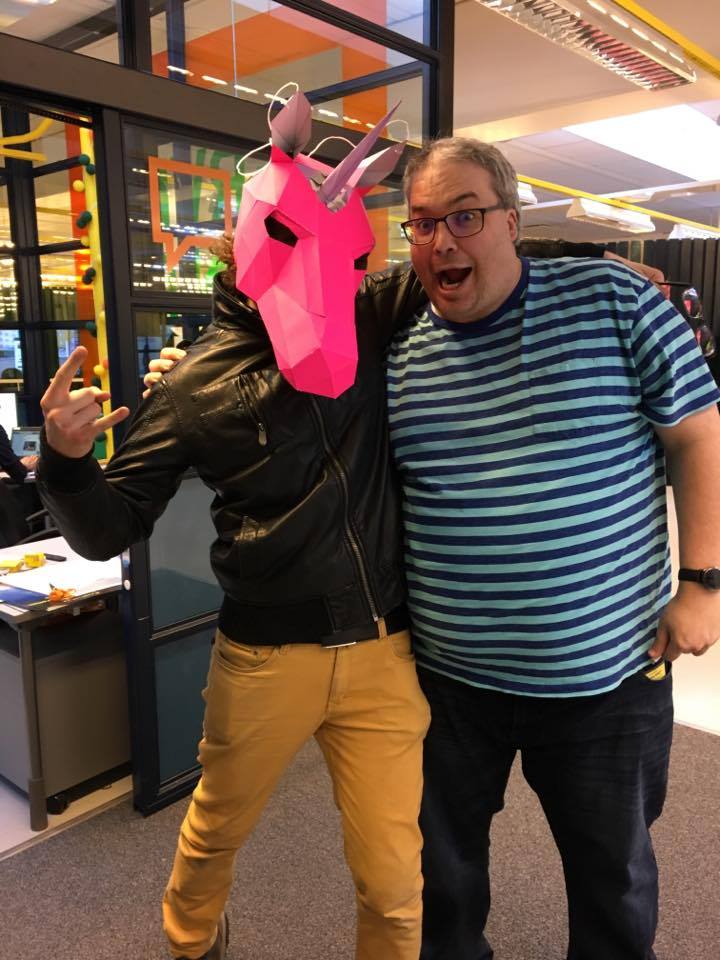
What modular helmet is?
My final project, modular helmet creates a versatile building surface on the top of your head. this surface
can be used to create unique designs on the top of your head by using different kind of materials and electronics.
With these designs, users can act as a different characters.
Who will use it?
The helmet is made mainly for my personal use so the helmet will be created to be custom fit to my own head to maximize
the usability of the helmet. However, when the helmet has been created, it´s possible that I develop the helmet project
further to a commercial direction where anyone could build or order similar helmet to fit their own head. Therefore, the
main user is me, and secondary users are people interested in wearable modular helmets.
How modular helmter works?
Modular helmet´s core is a FRAME which is consturcted from multiple shapes. This helmet (also seen
below) from PREY videogame has similar frontside as the helmet which I want to make:

To understand and visualized how my modular helmet could be made, I used Geomags and act according
to design thinking practices
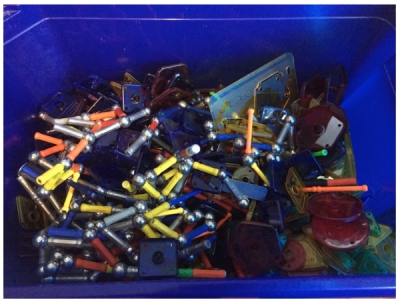
Each individual shape of the frame should be done so that there is a middle piece which can be removed if needed
This way, customizing posibilities are increased and I can change the colors of the individual shapes. This idea
can be seen bellow:
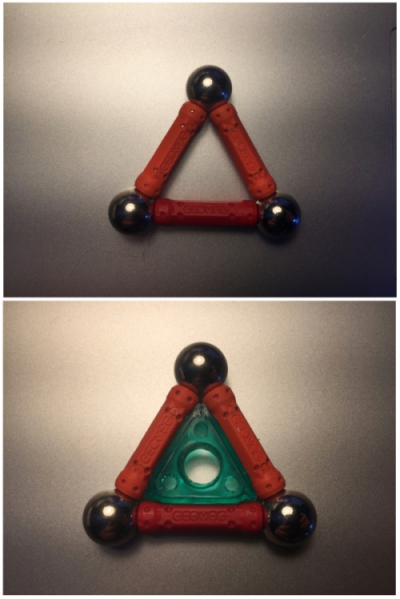
Each individual shapes should be connected together to create "rings" that go over my head and form the frame when
they are stacked top of each others. Other constructing posibilities, like folding, are also possible options as seen
bellow.
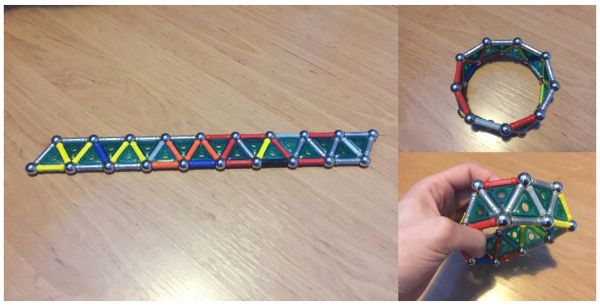
All of the shapes could be similar or different in patterns as seen below. However, the frame would
be more customizable if I would use minimal amount of different kind of shapes.
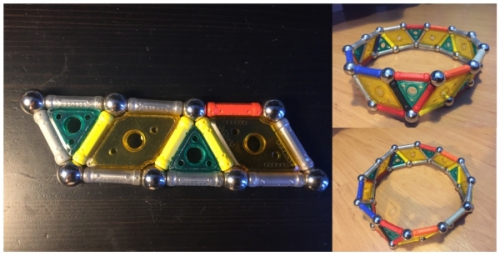
The frame could be done so that there is some kind of closing mechanism behind it. This way,
The frame would be easy to take of from head. To do this, the frame has to be flexible so that
it can be bended.
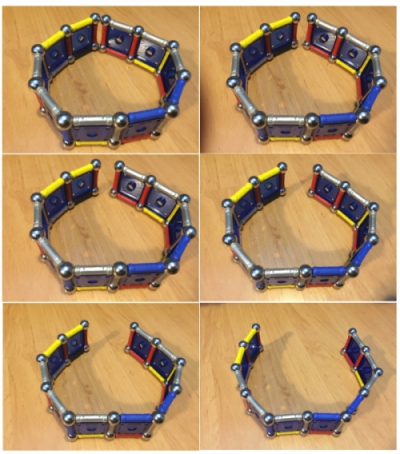
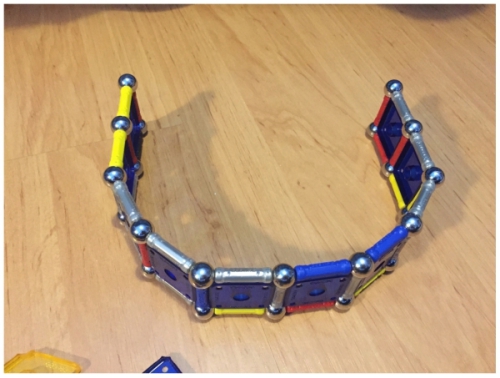
When the frame is ready, individual shapes are taken out to add modular pieces.
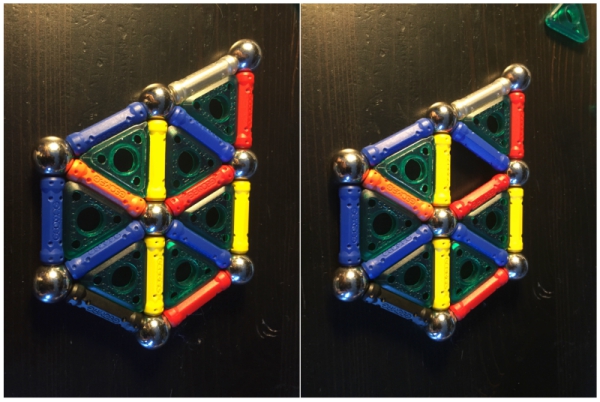
Even thou example below uses same kind of material and connections as the frame, modular pieces should be made from very
lightweight but durable material whereas the frame should be made strong materia which is able to contain the weight of many
modular pieces.
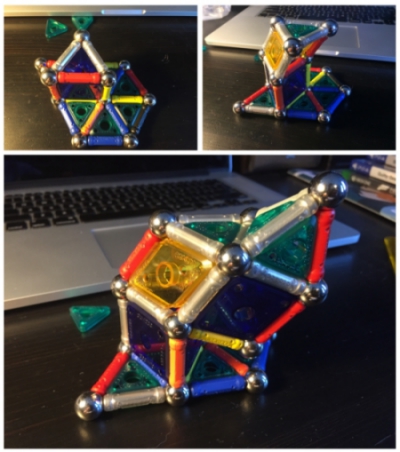
How modular helmet is made ?
After my design thinking session, I came to conclusion that I should seperate my helmet making process as follow:1. Build the frame
- Decide the building principle (Individual 2d frames, lasered material or something else...)
- Decide how modular pieces are connected to the frame and possible extra functionalities (Electronics, programs...)
- Decide the building software (Pepakura, Fusion 360, origami softwares...)
- Decide the building material (Tin-Plate, MDF, molding materials..)
- Model the frame
- Cut, print or mold the frame
- Assemble frame to its final form
2. Build modular pieces for the frame (Made mainly after the frame has been build)
- Decide the building principle (Individual 2d frames, lasered material or something else...)
- Decide the shapes of the modular pieces and possible extra functionalities (Electronics, programs...)
- Decide the building software (Pepakura, Fusion 360, origami softwares...)
- Decide the building material (Tin-Plate, MDF, molding materials..)
- Model modular pieces
- Cut, print or mold modular pieces
- Assemble modular pieces to their final forms
- Connect modular pieces different ways to the frame
3. Marketing, innovating and visualizing posibilities (After the frame and the modular pieces are made)
- Design different helmet designs (monsters, animals, abstarcts..)
- Photograph different designs and create stories around them
- Publish final project video and pages.
4. OPTIONAL: (If there is extra time)
- Test different frame and modular piece designs and building principles
- Create modular designs for different places of human body (Jackets, pants, shoes...)
EXTRA: Done before
First video stream with other labs
Fab Academy 2018 started, and we had a first video lecture. It wasimpresive to see, how well around 90 people video chat worked

Recording from first session
Our goal for first week was to plan our final project. I got few ideas but couldn´t
yet decide which one would be my final project...



This work is licensed under a Creative Commons Attribution 4.0 International License.